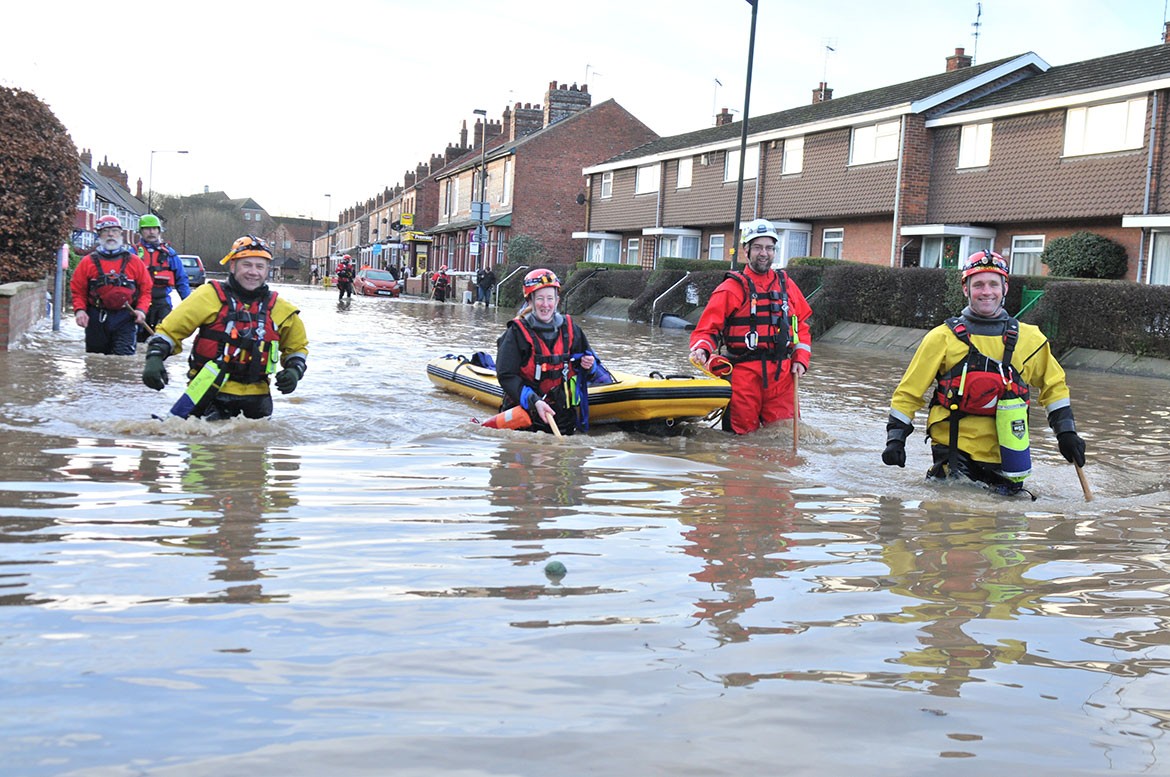The official report into the York floods of Christmas 2015 has been published – and prompted an attack on the council by the city’s MP.
The review into the flooding found that the controversial decision by the Environment Agency (EA) to raise the Foss flood barrier was “the best option available” and may have saved lives.
It said: “Although a difficult decision and taken under intense pressure, the subsequent hydrological surveys and analysis have shown that the decision to open the Foss Barrier was the best option available…
“The decision to open the Foss Barrier was the correct decision.”
Lack of information

The review into the worst flooding in York since 1982 was commissioned by City of York Council and led by barrister Angharad Davies.
More than 600 properties were inundated on Boxing Day 2015. The BT phone exchange was flooded leading to the loss of telephone services to about 50,000 customers.
Some residents had criticised the response to the unfolding crisis, caused by the wettest December since records began in 1910.
The report notes that “staff from virtually every section of the council” were involved in the response.

It said a 24/7 rota out-of-hours service was put into operation quickly but there were communication problems:
This seems to be part of a wider criticism that residents felt that there was a lack of information coming from CYC…
Some residents told us that even if they did get through to CYC they did not always get the information that they required. CYC acknowledge that the staff handling the calls were initially not well briefed on the situation and CYC’s actions.
Many of the recommendations in the report are about improving communications between the agencies involved, including the council, police and Environment Agency.
‘No plan of action’

York Central MP Rachael Maskell says the report revealed “a catalogue of errors” that meant that teams of volunteers were left to carry out work which should have been undertaken by council staff.
“Poor communication systems meant that people who turned up to help were not given any instructions and vulnerable people desperately in need of help were ignored.”
She said:
Poor governance of the inquiry process by the council has meant that residents and businesses have waited over a year since the floods to learn what went wrong.
Within its 92 recommendation is a focus on better co-ordination and communications, where the report highlights, at times, chaos, when there should have been a clearly executed plan of action.
‘Much work has been done’
Ms Maskell also criticised the timing of the report’s publication, saying “the inquiry was supposed to report back its findings before Christmas but was instead issued last Friday afternoon when the eyes of the world were on the presidential inauguration”.
Cllr Andrew Waller, Liberal Democrat executive member for the environment, said lessons needed to be learned:
We all need to study this report in detail and quickly progress those changes which are needed.
Much work has been done in the year following the flood, and this needs to be built upon to ensure that the public has the confidence that all agencies and volunteers are working together in the most productive way for the future.
